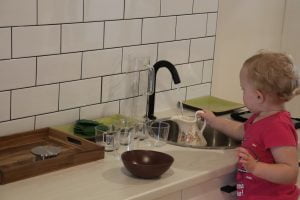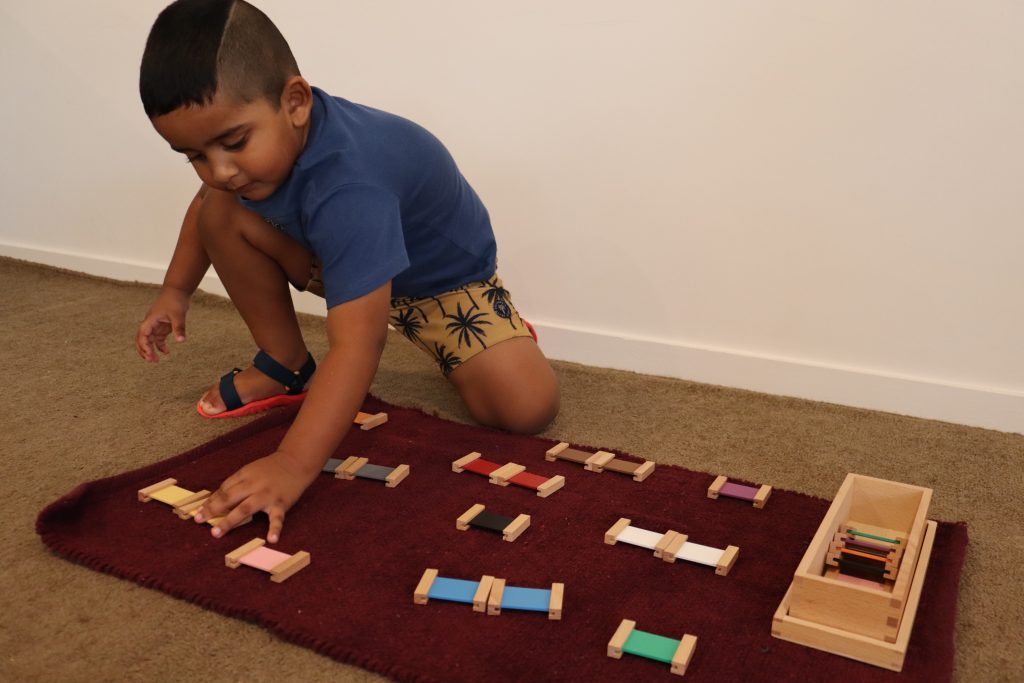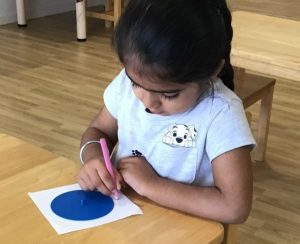The Montessori Classroom (for under 5’s)

Montessori education is a child focused approach to learning that was developed by Italian philosopher, Dr Maria Montessori in 1907. Since then, the Montessori methodology has spread across the globe inspiring both parents and educational institutes to follow her early childhood philosophy of independence, love and hands on learning.
“Education is a natural process carried out by the child and is not acquired by listening to words but by experiences in the environment.” Dr Maria Montessori
At Sesame Lane Montessori Children’s House, we strive to respect education as a natural process and set up experiences in the environment to aid the child on their path to adulthood. We achieve this by setting up a prepared environment sectioned into 5 keys areas of development where the children can work in a quiet hum of learning, either independently or in small groups. These areas are:
Practical Life:
- Fine-motor control
- Caring for self
- Caring for the environment
- Grace and curtesy
- Food preparation
- Hand-eye coordination
Mathematics
- Number recognition
- Introduction to quantity
- Mathematical symbols
- Numbers through 10
- Decimal system
- Geometry
- Concept of zero
Culture:
- History
- Zoology
- Botany
- Geography
- Science
- The arts
Language
- Reading
- Writing
- Phonetic sounds
- Grammar and punctuation
- Insets for design

Sensorial:
- Gustatory (Taste)
- Olfactory (Smell)
- Tactile (touch)
- Visual (sight)
- Auditory (sound)
- Kinaesthetic (muscular)
- Stereognostic
- Thermic (temperature)
- Baric (weight)
Our classrooms have a ‘Montessori Work Cycle” each morning where the children have access to a wide range of materials that they can choose to work with. Each activity is displayed on a tray or in a basket, defined by their learning intentions; this allows the child to select an activity that appeals to them and their own individualised learning pathway. The child then carries that activity to a table or a ‘work mat’ and completes the activity for as long as they wish. Educators in the room protect the learning space of the working child by ensuring that the noise level of the classroom maintains low and that the working child is not disrupted.

Dr Montessori observed that the child has a love of learning and a strong inner desire to grow and develop at their own pace. She noted that children learn through practising tasks rather than listening and having to remember leading a beautiful and child-centred concept in towards learning in the early years.
Want to learn more? Phone our North Lakes Montessori Children’s House on 07 3491 7013.



